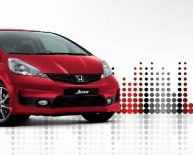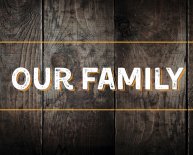
Insurance Company Reviews
“Large national carriers are likelier to invest in emergency response equipment and technology, which gives them an edge. Self-contained mobile response vehicles allow claims adjusters to process claims right at the scene of the disaster. Having in-person access to your insurance company representatives in a time of need is very important.”
Special eligibility requirements also knocked out a handful of carriers, most notably USAA, which insures active and retired US military members and their families. USAA consistently draws high praise, so if you are eligible, we highly recommend considering it as an option.
21st Century, ACUITY Insurance, Alfa, Allied, American Family Insurance, American Reliable, Ameriprise Financial, Arbella Insurance, Assurant, Austin Mutual, Auto Owners Insurance, Badger Mutual, Century National, Chubb, CIG, Cincinnati Casualty, Country Financial, Direct Line Auto Insurance, Elephant Insurance, Erie Insurance, Esurance (Allstate), Farm Bureau, Figley Salz & Co., First Security, Gallant Insurance, GMAC Insurance, Grange, Grinnell, Hallmark Insurance, Hanover Insurance Group, Horace Mann Auto Insurance, Infinity Insurance Co., Kemper Corp., Kentucky Farm Bureau, Merastar, Merchants Insurance Group, Mercury General Insurance, MiddleOak, Midwest Mutual, Mutual, New Jersey Manufacturers Insurance, Northstar, NYCM Insurance, Pacific Specialty, Partners Mutual, Pekin, PEMCO Insurance, Penn National Insurance, Personal Express Insurance, Pioneer State Mutual, Premier, Quality, Rockford Mutual, Safety Insurance, Safeway Insurance, Secura, Selective Insurance, Shelter Insurance, Sublimity Insurance, Sutter, Tower, Tri, Utica, Viking Insurance, Wausau Insurance, West Bend Mutual, Western National, Westfield, State Consumer, USAA
The best had to have high Financial Strength Ratings from A.M. Best and either Standard and Poor’s, or Moody’s.
Since the whole point of insurance is to protect you financially, it’s vital that your carrier has enough money to pay out its claims — which, in the event of a natural disaster, can be sudden and massive. Plus, the provider you pick will most likely be your provider for a very long time (if not forever) and should be financially dependable for the long term.
The best way to compare financial solidity among carriers is to use Financial Strength Ratings from independent agencies. Among the major agencies, only A.M. Best focuses solely on insurance, so we required all companies to have a high rating from the firm. Then, because the Insurance Information Institute recommends getting ratings from two or more agencies, we decided to also require a high FSR from at least one of the two largest agencies: at minimum “very strong” (AA-) from Standard & Poor’s or “high quality” (Aa) from Moody’s.
AAA, AIG Property Casualty Company, American National Property & Casualty, California Casualty, Electric Insurance, EMC (Employers Mutual Casualty Co.), Encompass Insurance (Allstate), Farmers, Federated, GuideOne Insurance, Homesite (American Family)
Liberty Mutual, Markel American, Nationwide, Primerica, QBE Insurance Corporation, Safeco Insurance (Liberty Mutual), State Auto Insurance, The General Insurance (American Family), The Hartford
If carriers didn’t underwrite an “open perils” policy — the most popular type of homeowners insurance in the US — we nixed them.
Like most types of insurance, homeowners policies can be tailored to provide varying levels of protection. For freestanding, single-family dwellings, the chief difference in policy types is between named perils, which covers only the specific risks named in the policy, and open perils, which is the complete opposite. Even though not everyone will choose to insure their home with the comprehensive open perils policy, in order for an insurer to be named the best, it should offer it.
Ace Group (Chubb) HNW, American Modern, Foremost Insurance, Zurich Insurance Group
We cut out the middlemen.
Not every company that services homeowners insurance actually underwrites its policies. These companies don’t carry the risk and they don’t design their own policies. In fact, they’re simply brokers.
We ranked the final five contenders on how happy we’d be if they were our provider.
Because homeowners insurance is impossible to truly test without committing fraud (we couldn’t burn down a house to see who processed our claim the best), we rated the top five carriers based on other, less-fraudulent criteria.
Tools to help buyers find just the right coverage.
Shopping for a home insurance policy isn’t something anyone gets to practice a lot. You have to learn on the fly and there’s a ton of unfamiliar information to absorb, especially for first-time homeowners, so websites and reps had to be able to walk us through it. MetLife did the worst in this area; its website basically just says, “We have great homeowners insurance! Call an agent to find out more!” In contrast, Allstate and State Farm provide plenty of advice on choosing the right policy type and coverage limits, all while happily acknowledging you might not be a customer yet.

















